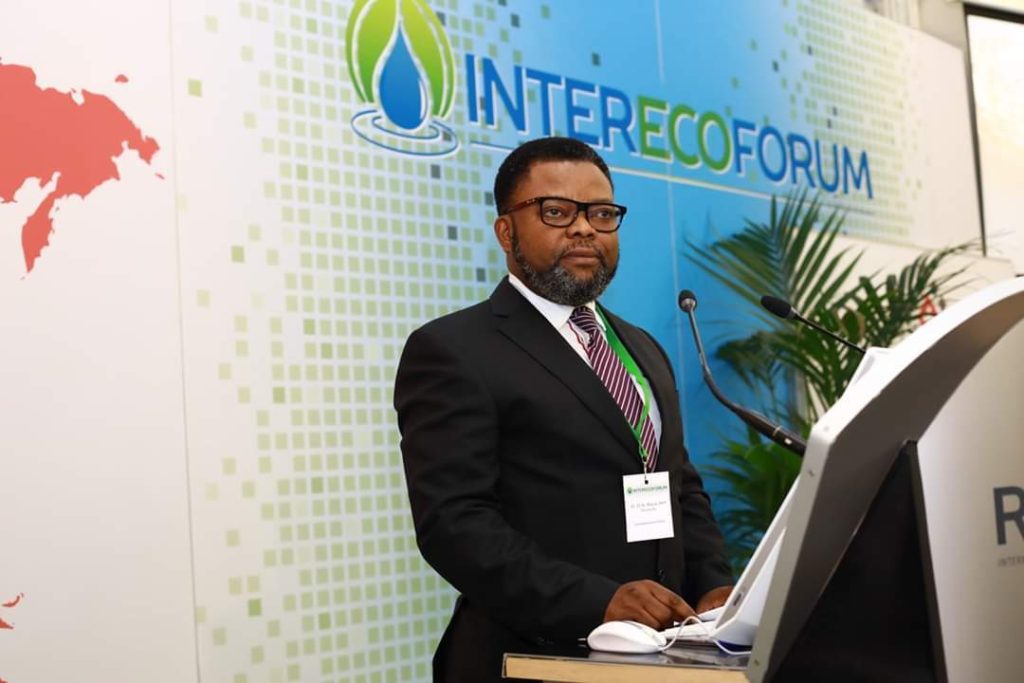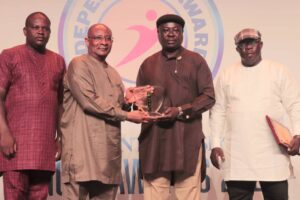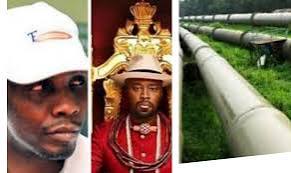Dutch-Nigerian Activist Proffers Solution To Water Crisis In Nigeria
A Netherlands-based Nigerian activist and Founder/Executive Director, Hope For Niger Delta Campaign, (HNDC) Comrade Sunny Ofehe has proffered solution to water crisis in the country.
Ofehe, who spoke at a United Nations backed Inter Eco Forum conference on Global Water Sustainability in Spain, said that despite the huge water resources, there have been lingering problems of water management, in relation to quality, quantity and availability in Nigeria.
The activist who delivered a paper entitled: “Nigeria Water Resources And Management: Challenges And Prospect”, attributes weather and other climatic peculiarity that characterized the nation’s regionalization as challenges to water resource in the country.
According to him, owing to the huge water resources in the country, it is expected that, the region would enjoy abundant water supply, but is not so in most part.
Specifically, he told the conference that Lagos-Nigeria for instance, due to its proximity to the Atlantic Ocean is faced with water quality, inundation and flooding problems due to the very high water table near the earth surface.
He said that quality of fresh water resources in most part of the country has been compromise from underground water aquifer pollution, siltation as a result of fresh water –ocean mix, and flooding which comes with impurities.
Particularly, Ofehe a former APC governorship aspirant in Delta State, said that the major Nigerian Niger Delta States, namely Delta, Bayelsa, Rivers, Akwa Ibom and Calabar are threatened by recurrent flooding including Lagos staff, suffers more of water crisis resulting from the activities of major multinationalals operating in the region.
He highlighted some of the reason for the hydra-headed problem to include failure of the government to maintain the specific standards set by either World Health Organization (WHO) or United States Environmental Protection Agency (USEPA), to access and monitor drinking and/or industrial water quality.
According to him, Edo State (specifically Ekpoma, Irrua and Uromi), which is one of the Niger Delta State, suffers from not just water quality but water resource availability and quantity, due to the state’s geological formation and low water table.
Aparts, Ofehe said that the Niger Delta region and Eastern Part of Nigeria, are plagued with serious water challenges resulting from lack of infrastructure that provides quality, clean and access to water.
He listed other causes of water crisis in the country to include, pollution from soil weathering and erosion, open waste dumping and burning and poor urban management.
In the North of Nigeria, he said, it is very different and worse with alarming cases of draught, thus water scarcity due to the scanty rainfall and forest cutting for farm lands, leading to desertification and climate change impact.
He lamented that after forty (40) years of establishment, Nigeria is yet to be boosted with a well developed, documented and coordinated water plan, its availability and resource bank adding that the Public water utility once working have been moribund and with few states operating partially.
As a result, the Nigeria people have resulted to providing their personally water supply.
One of such is the sinking of private boreholes, which is now the common fresh water source and available in most homes, except for areas with very low water table, he told the conference.
While calling on the United Nations to review the water resources management in Nigeria and attendant problems of water crisis, Ofehe stressed that Nigeria is signatory to several environmental and water agreement, but the under development of the sector is a reflection of the institutions saddled with its responsibility and monitoring.
He urged the federal government to invest, institutionalize, develop policies and legal regime and financial stability for the sector as well as overhaul and return to the original master plan and/or goals of both the Federal Ministry of Water Resources, and their state counterparts.
These, according to him, will help to reduce the stress on water resources and alteration of the earth surface, as well as cases of water borne diseases.
The regulatory agencies such as NAFDAC and others be professionalize and equipped with the needed knowledge to certify water vendors and manufacturing companies.
“The operations of the oil & gas companies in the Niger Delta should be well regulated to reduce water and food pollution. Especially the scientific researches conducted should be doubled checked and recommendation implemented.
“Artificial dams and water supplies should be developed in the Northern part of the country, to reduce the disease incidence and in some case cases death due to the consumption of contaminated waters.
There is need for effect forest area conservation, especially in the Northern part of Nigeria, to minimize the effect of climate change which has further deepened the problem”, he added.
Credit: BigPen




